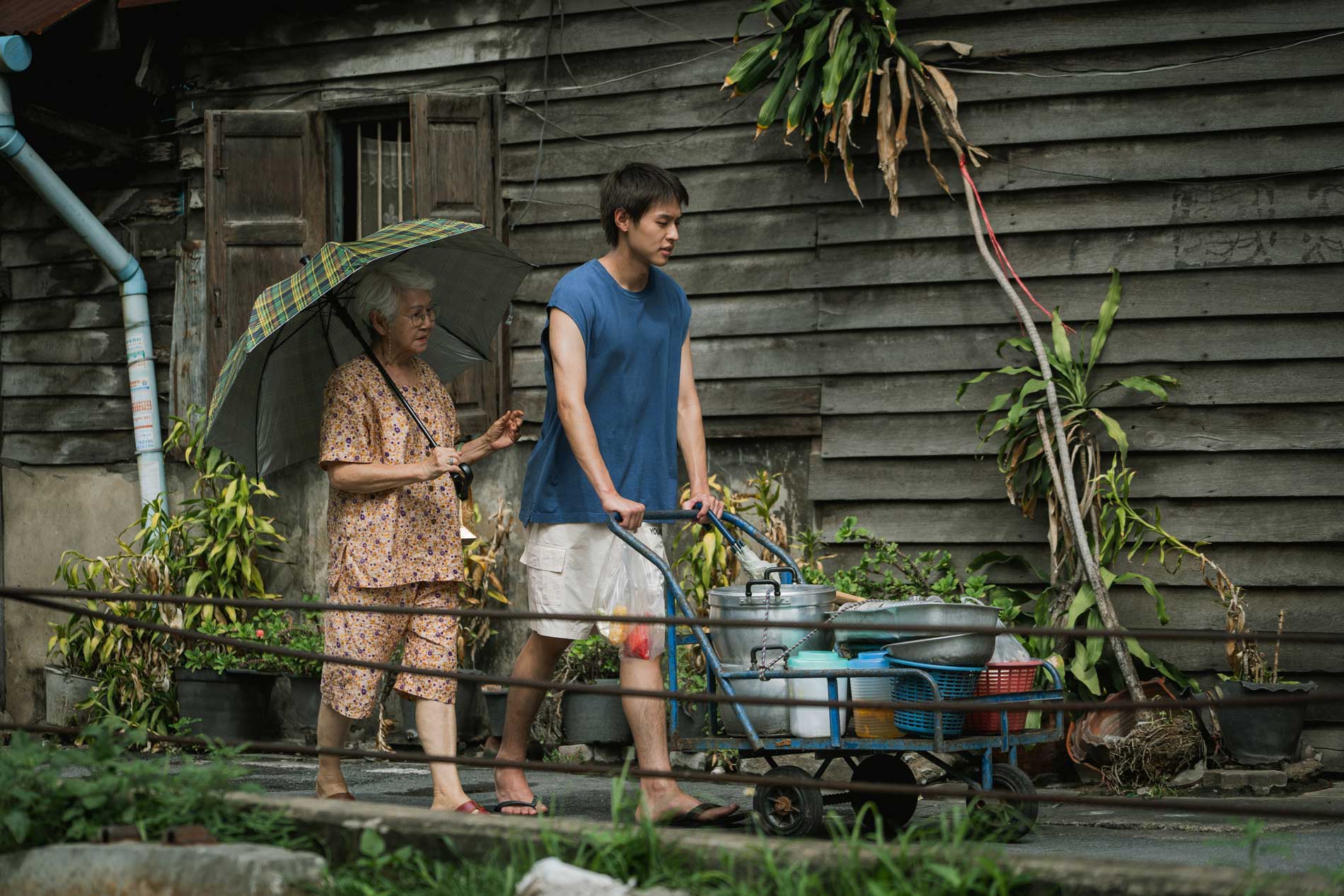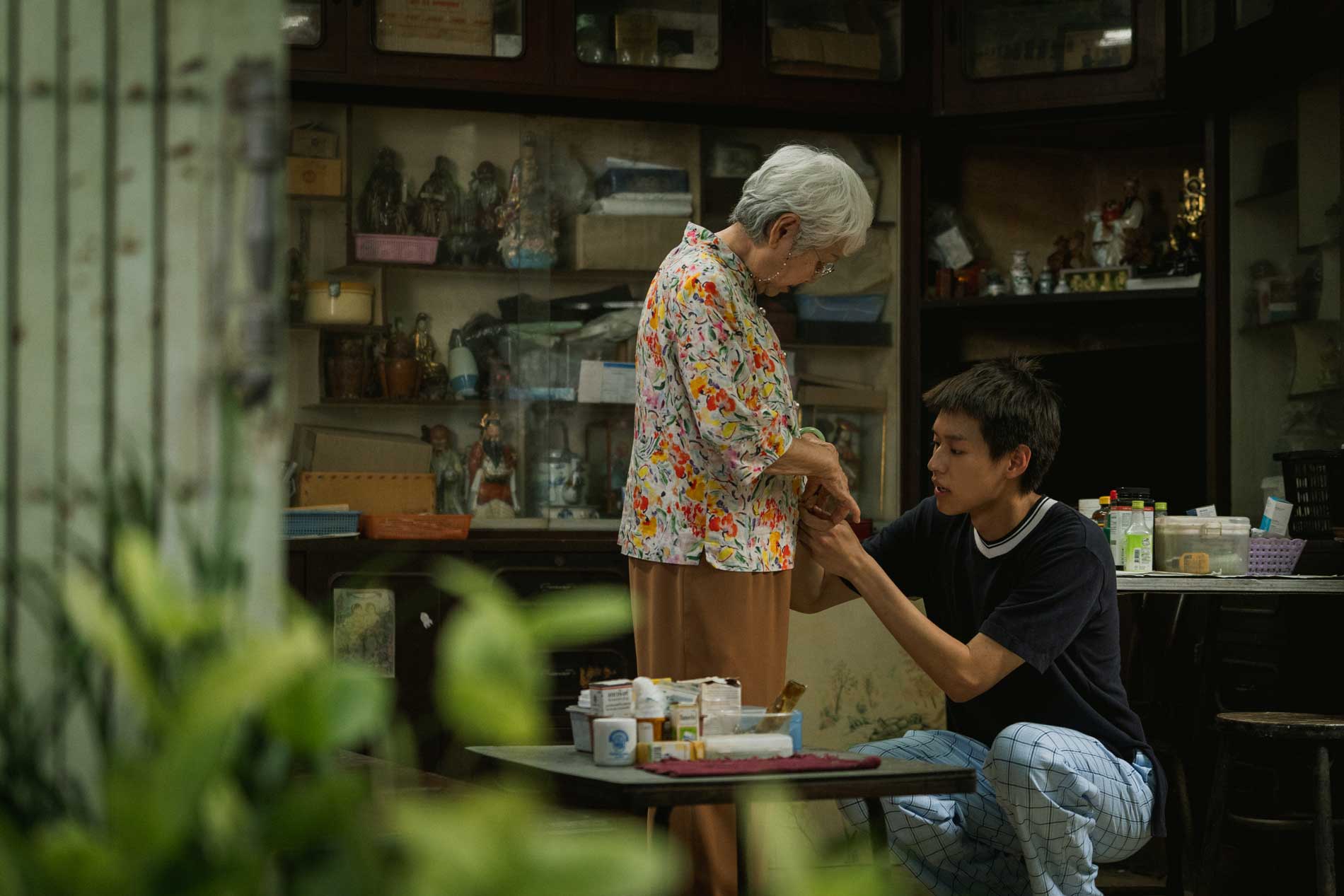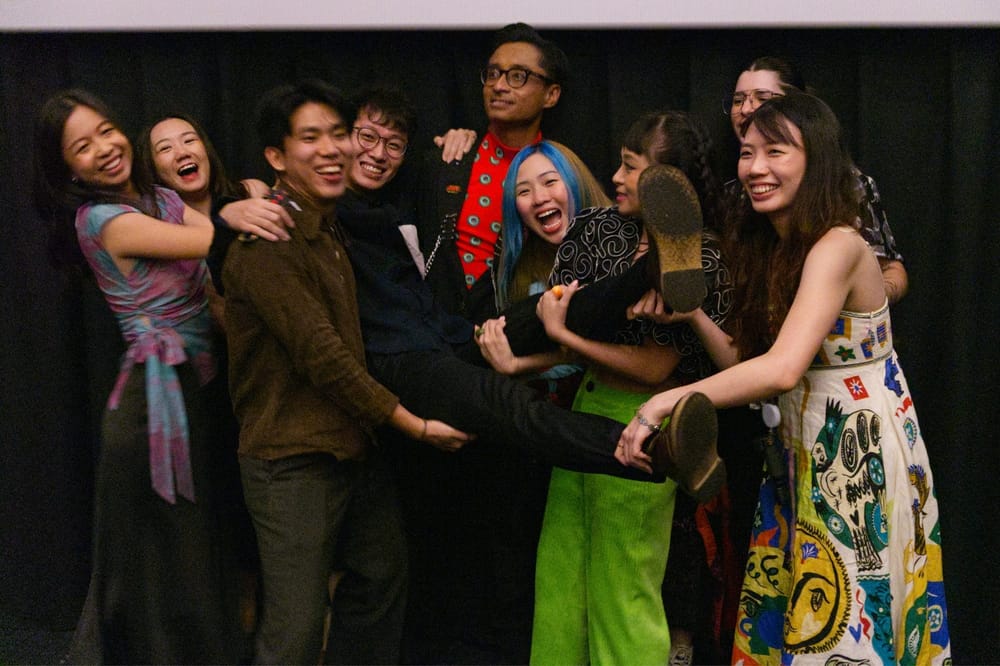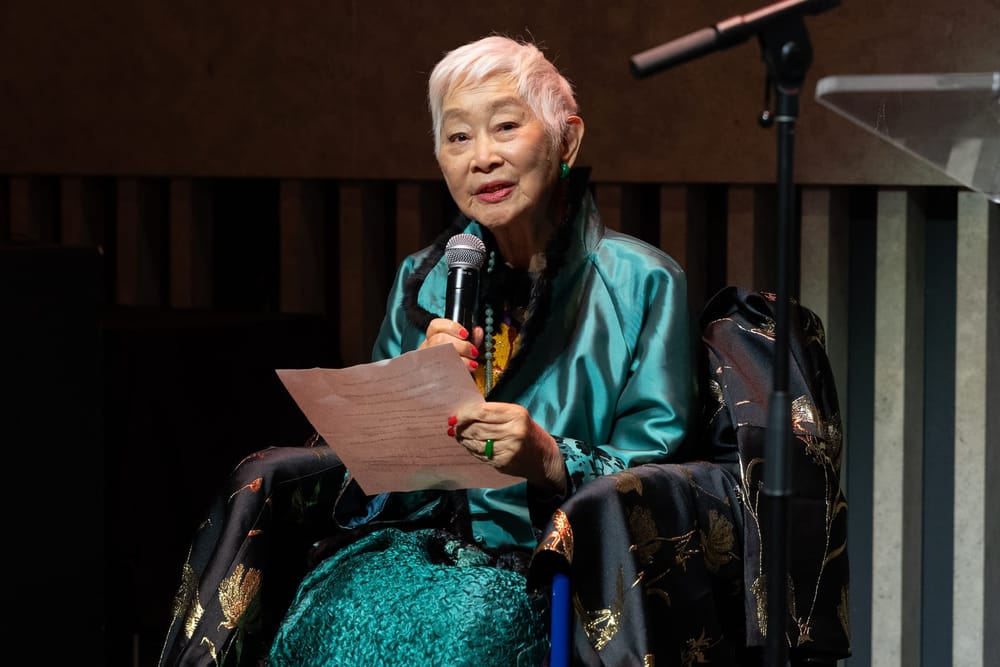By Stephanie Mayo
They say never believe the hype, but this time believe it.
“How To Make Millions Before Grandma Dies,” a Thai drama that I initially avoided out of suspicion of melodrama, took me by surprise.
I had imagined it to be overwrought with emotion as it exploits a grandma and grandson’s unique bond, and to serve as fodder for content creators who trek to the cinema armed with their phones to video their tear-streaked faces for views and likes.
Also, I am not a weeper.
And so what part in the movie made me cry? When our anti-hero, the “good for nothing” M, tells his grandma: “Mah, come home with me. I’ll make you congee.” That’s when I lost it. Then my tears continued long after the credits rolled.
Pat Boonnitipat, a 33-year-old self-taught filmmaker, is behind this realistic depiction of intergenerational relationships. He crafted an uncomplicated and restrained drama that provokes both introspection and retrospection.
For two years, Boonnitipat revised the original script (a slapstick comedy) from Thodsapon Thiptinnakorn and turned it into a semi-autobiography. The result is an authentic portrait of family relationships, particularly the plight of the elderly, who are often neglected, either emotionally or physically.
It became a runaway hit in Southeast Asia, resonating deeply with Asian viewers, and more so with the Chinese diaspora for its accurate portrayal of Asian family values and dynamics. It was a blockbuster gold in the region, reducing viewers from the Philippines, Singapore, Indonesia, Vietnam, and Myanmar to tears.
The film takes us to the subdistrict of Talat Phlu, one of Bangkok's Chinatowns. There, a Teochew Chinese grandma lives alone. She resides in a typical modern Chinese house with a functional interior. It is old and small, crowded with things: from medicine bottles to hanging plastic bags littering her walls, religious idols, and cabinets bursting with wares. It looks so "lived in" you could almost smell the house.

Here's the drama: Grandma, or Ah Ma in Chinese, is dying. And we watch Ah Ma’s last moments on Earth through the eyes of her grandson, M.
M, a frivolous college dropout-slash-game caster, shows up on Ah Mah’s doorstep to live with her and take care of her—but not because he genuinely cares about Ah Ma. M has an ulterior motive. Desperate for easy money, he sees Ah Ma as his get-rich-quick project, believing he would inherit her house for being her primary caregiver.
While the storyline is predictable—M and Ah Ma will develop a special bond, a common “unlikely-friends” movie trope, and that M will have a change of heart—it is how Boonnitipat weaves his story that is rather special.
With self-assured direction, he takes his sweet time in building rapport, tension, and visual subtext. He also beautifully captures the idiosyncrasies of Ah Ma, who is rightfully cynical about M.
The dialogue is succinct and impactful, with intermittent humor. But it is the quiet moments that emotionally punch us—the somber reflections, the slap of realizations, and all the microexpressions that expose the characters’ shame, pain, guilt, and heartbreak.
Boonnitipat is in full control of his narrative and brings out naturalistic and nuanced performances from his brilliant cast. The grandma is impressively played by a first-time actress, Usha Seamkhum, and the grandson is played by Thai heartthrob Putthipong Assaratanakul, also known as Billkin.
The film champions content over style. It avoids spoon-feeding, as well as the greatest filmmaking sin in my book: preachiness. Boonnitipat trusts the intelligence of his audience, confident that his story will resonate and inspire without the need for embellishments, or a manipulative musical score, or snazzy editing. The film is raw, presented in the filmmaker’s sharp and clear visual language.
While he also immerses us in Thai-Chinese culture and religious traditions, he never loses focus on the heart of the film: M, whose perspective changes as he slowly begins to understand the world of Ah Ma.
It is not a heavy drama, just a keen observation of familial relationships and values. Even if you're not close to your grandma, as long as you are a human being with a parent or a grandparent, this will tear you apart.
And while we follow M in his journey to wisdom and enlightenment, we also get a rich commentary on conditions faced by the elderly, like isolation and loneliness, and human frailties such as selfishness and greed. But the film’s biggest theme is love.
One of the best films of the year so far, “How To Make Millions Before Grandma Dies” is a heart-wrenching love letter to all the Ah Mas with their unconditional love. The film is also a gift to viewers who still have time to reflect on things more valuable than millions…before Grandma dies.
Country: Thailand
Director: Pat Boonnitipat
Writers: Thodsapon Thiptinnakorn, Pat Boonnitipat
Cast: Putthipong Assaratanakul, Usha Seamkhum, Sanya Kunakorn, Sarinrat Thomas, Pongsatorn Jongwilas, Tontawan Tantivejakul
Languages: Thai with English subtitles
Running time: 127 minutes
Screening times:
- Wednesday July 17, 5:45pm, Film at Lincoln Center (sold-out)
- Friday July 26, 6:00pm, SVA Theatre
Intro and Q&A with director Pat Boonnitipat and actor Putthipong "Billkin" Assaratanaku








